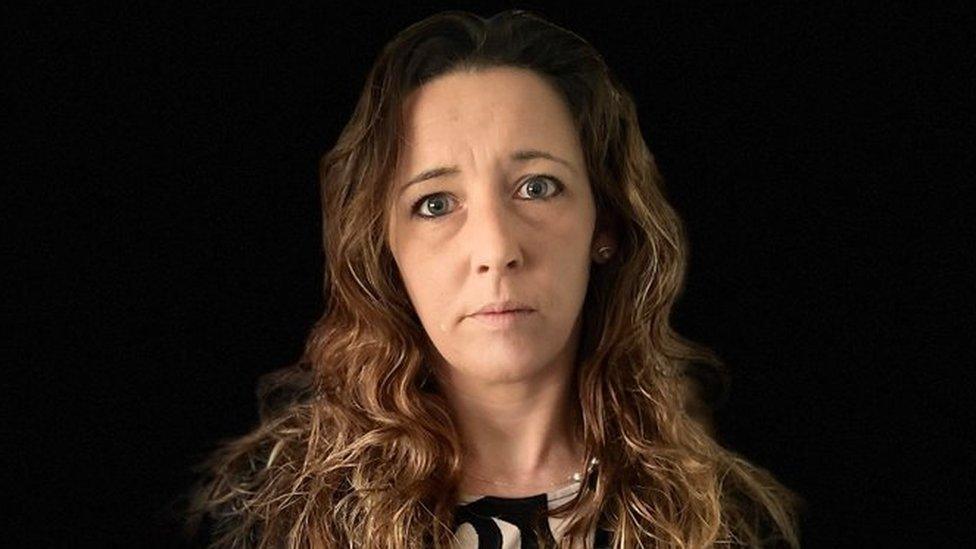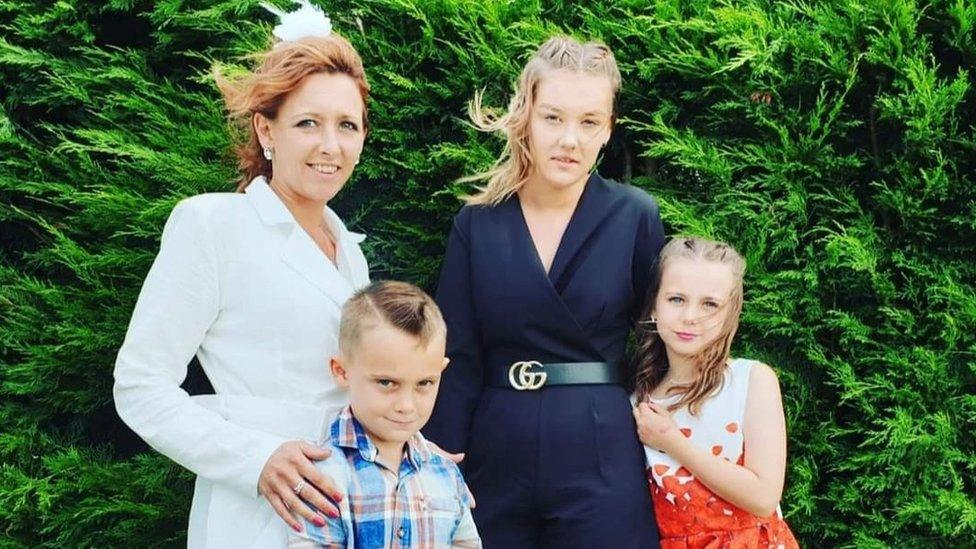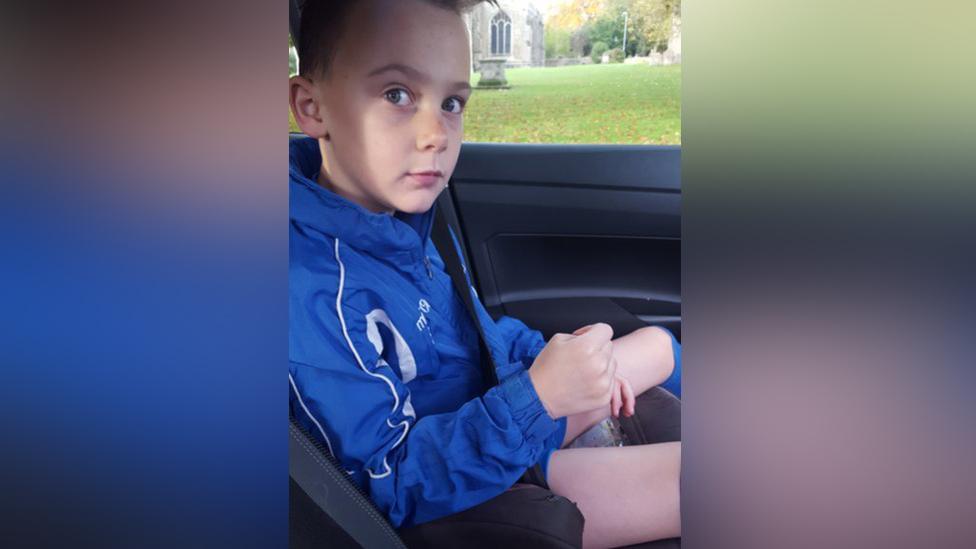Ambulance trust apologises to Cambridgeshire family over boy's death
- Published

Claire Wesley says "it feels like we have gone through a war to get here"
An ambulance trust has apologised to a family four years after their son died following a decision not to take him to hospital.
In 2019 an emergency medical technician (EMT) cancelled an ambulance after visiting Kaleb Ablett, who had symptoms of Group A Streptococcus.
Kaleb, 8, went to Peterborough City Hospital the next day where he died.
The East of England Ambulance Service said it had "worked hard to ensure lessons are learned".
Claire Wesley, Kaleb's mother, also told the BBC about delays in Cambridgeshire and Peterborough Coroner Service setting a date for his inquest.
"It's been failings after failings with certain systems and it has just felt like a battle the whole time," she said.
EMTs can attend the same callouts as paramedics, but the paramedic is the senior role.
Leg pain
Kaleb initially developed symptoms consistent with a cold and was diagnosed with a viral upper respiratory tract infection in December 2019.
He later developed leg pain and his mother described how her son then needed help walking to the toilet.

Ms Wesley says when the EMT arrived he did not take into account the symptoms Kaleb (bottom left) was presenting
After dialling 111, an emergency-response car was dispatched to the family home in March, Cambridgeshire, over concerns of possible sepsis.
The family then dialled 999 for an ambulance.
According to Ms Wesley, who has multiple sclerosis, when the EMT arrived he did not properly take into account the symptoms her son was presenting.
"He said that there were some viral infections going around at the moment," she added.
"I told my eldest daughter 'could you go and pack Kaleb a bag' because I assumed we were going to hospital," Ms Wesley said. Yet instead the ambulance was stood down by the EMT, Andrew Mower, who did not think it was necessary.
The following day Kaleb began vomiting and shivering and when he did arrive at a hospital, his condition deteriorated further.
He suffered a cardiac arrest and died on 30 December.
"He was our little light, a bundle of joy," said his mother, who added that his death had "left a massive void".
Narrative verdict
An inquest in February 2023 issued a narrative verdict, which concluded that Kaleb had died from deep vein thrombosis triggered by a Group A Strep infection behind his left knee.
In a letter to Ms Wesley's solicitor, the ambulance trust, via its legal representative, admitted the EMT had "failed to obtain a sufficient history" on Kaleb's clinical position and failed to "take into account the entire picture".
"Had Kaleb been taken to hospital, it is more likely than not he would have survived," it said.
The trust also admitted that an out-of-hours GP should have been called to see Kaleb, who would have recommended the eight-year-old be taken to hospital.

Kaleb was a keen football player and played for March Park Rangers Youth FC
Ms Wesley instructed lawyers to obtain more answers from the ambulance trust.
Last week she received an apology from the trust. She said: "It has been frustrating to get to four years later and we are only able to start to grieve properly now."
Ms Wesley's solicitor, Marianne Stapleton from Irwin Mitchell, said: "Since losing her little boy so suddenly, Claire has had a number of questions about what happened. We've been determined to help her obtain the answers she deserves and therefore welcome the trust's admission."
'Safe discharge policy'
Correspondence from the Cambridgeshire and Peterborough Coroner's office, seen by the BBC, said delays in obtaining expert reports were the reason for the postponements in setting the final inquest date.
Mr Abell said: "We extend our deepest condolences to Kaleb's family. I am sorry that the care he received was not of the standard we set ourselves and not in line with guidance at the time.
"We have worked hard to ensure lessons are learned from this tragic case. Actions we have taken include making the process about deciding not to take patients to hospital far more robust, and ensuring appropriate documentation is completed."
The trust has now introduced a "safe discharge policy" after this incident, to provide its clinicians with robust guidance to make a clinically-safe decisions around not taking patients to hospital.In a previous version of this article we attributed the letter to Ms Wesley's solicitor as coming from the trust chief executive, when it in fact came from the trust's legal representatives.

Follow East of England news on Facebook, external, Instagram, external and X, external. Got a story? Email eastofenglandnews@bbc.co.uk , externalor WhatsApp 0800 169 1830